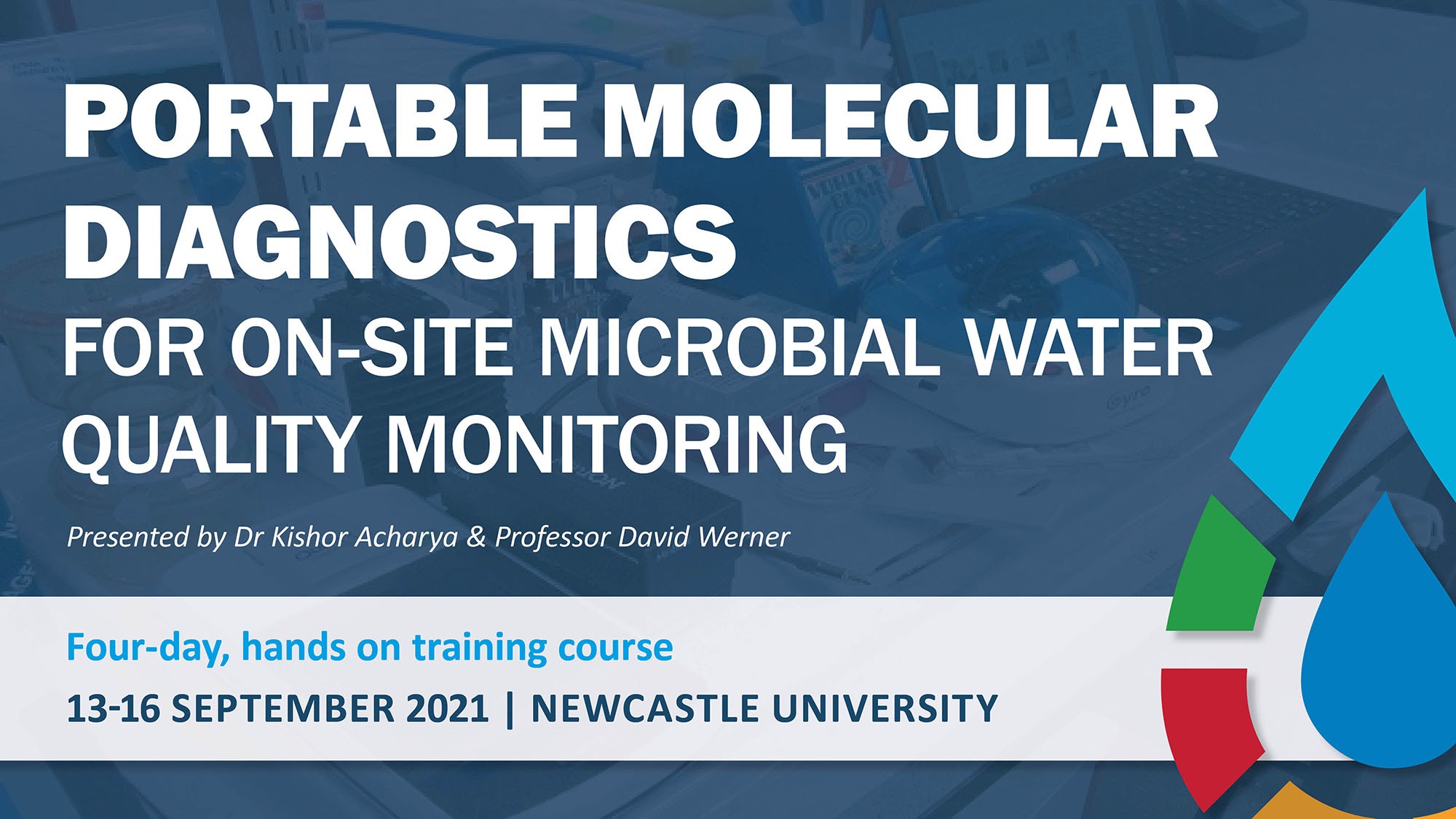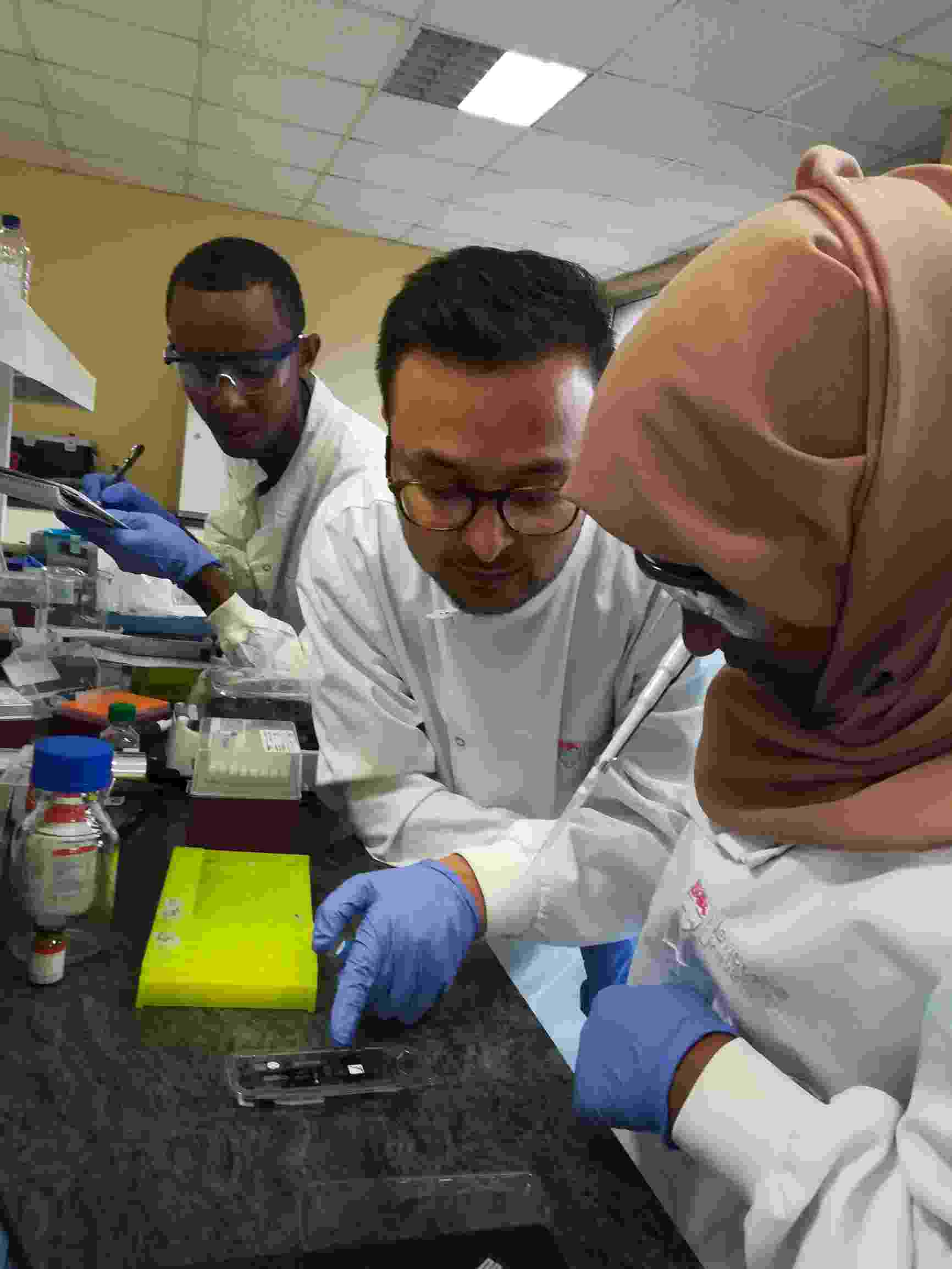NEW COURSE: Portable molecular diagnostics
A four-day, hands on training course in portable molecular diagnostics for on-site microbial water quality monitoring
20 July 2021

Portable molecular diagnostics for on-site microbial water quality monitoring
Course dates: 13th – 16th September 2021
Venue: Newcastle University, Newcastle upon Tyne, NE1 7RU, UK
Overview
Comprehensive water quality monitoring can be costly, time-consuming, and resource heavy - a portable testing lab ensures easier and faster on-site water quality assessment using affordable resources.
The ‘Lab in a suitcase’ includes a field deployable qPCR and memory stick-sized DNA sequencing device from Oxford Nanopore Technologies. This sequencing device enables the screening of hundreds of thousands of bacteria in a single analysis, while portable qPCR assays help in validating the screening data in real-time.
This course is designed to provide valuable insights into how the microbial communities in water samples, and related water hazards, can be assessed in near real-time using this portable molecular diagnostics toolbox, or 'Lab in a suitcase'.
The training will be delivered by the Hub’s Dr Kishor Acharya and Professor David Werner, experts based at Newcastle University.
Who is the course aimed at?
This course aims to inspire and equip delegates with a range of backgrounds with the advanced knowledge and hands-on skills needed to use portable molecular diagnostic tools. The portable tools are broadly relevant to those working in the water sector, food industries, agriculture, health services, and beyond, and the course is particularly relevant for:
Consultants, environmental officers, water and wastewater engineers, academics, environment agency staff, and water utility staff.
To take full advantage of the offering, course delegates should have a theoretical understanding of the basic concepts in microbiology.


Course outline
The course will be delivered over four days, and will include the following training and activities:
- Water Sampling
- On-site water quality monitoring
- Filtration
- Faecal indicator bacteria count using plating
- DNA extraction
- Library preparation (PCR, PCR product clean-up, DNA quantification, pooling)
- 16S rRNA gene quantification by qPCR
- DNA sequencing (16S rRNA amplicon sequencing) using a portable sequencing device
- Sequencing data analysis and interpretation to understand waterborne diseases and related health burdens.
Course objectives
By the time you've finished this training, you'll have completed:
- Hands-on training in the analysis of water microbiomes using next generation sequencing and qPCR assays
- Training in the basic skills for bioinformatic data interpretation and microbial hazard assessment
- Training in the use of a portable tool box to investigate microbial water quality
You'll also be able to:
- Apply portable technologies to describe and manage microbial hazards anywhere in the world, including in the water, food and drinks industries, the health services, agriculture and beyond
- Use your initiative in acquiring and using related information
- Confidently and critically discuss relevant issues, and produce innovative solutions to problems
Course fee: £400
Registration deadline: 31st August 2021
To book your place contact: cpd.sage@newcastle.ac.uk
For any enquiries please contact Dr Kishor Acharya (Kishor.acharya@ncl.ac.uk) or Professor David Werner (david.werner@ncl.ac.uk)
“Portable next generation sequencing and qPCR devices can revolutionize our ability to describe and manage biotechnological processes and microbial hazards anywhere in the world, including in the water, food and drinks industries, the health services, agriculture, and beyond.”



